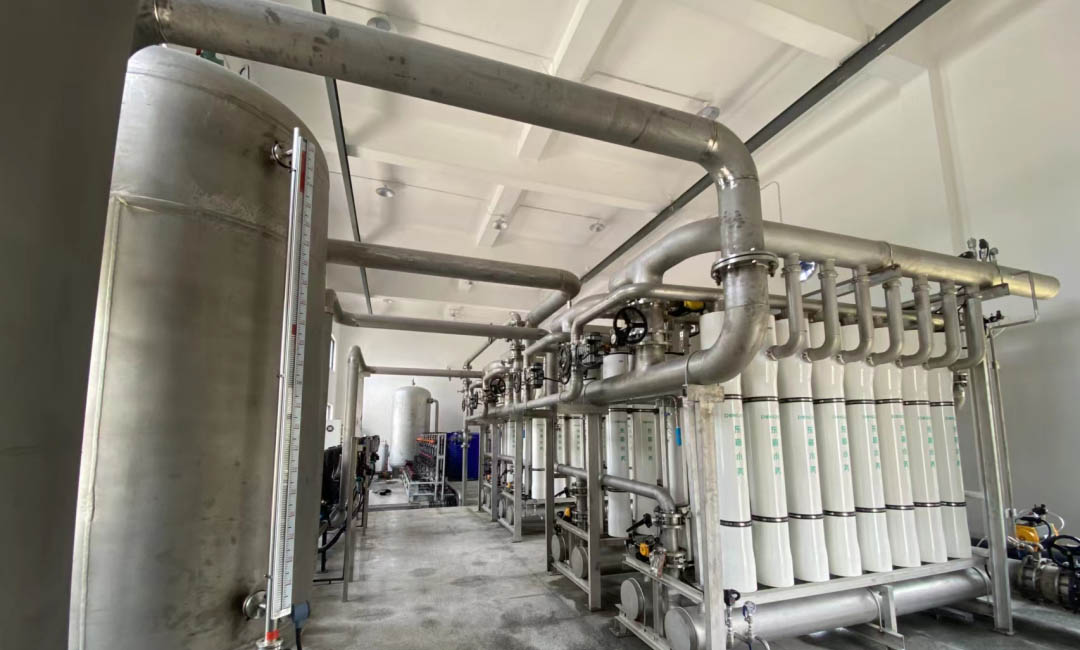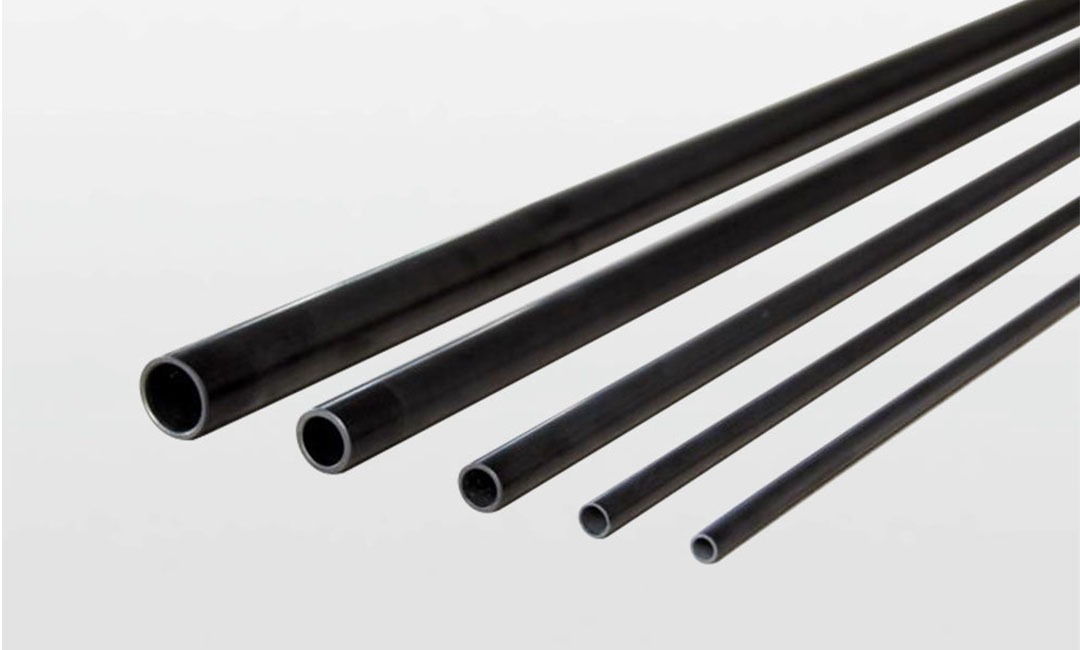Superior Chemical Resistance
Silicon carbide (SiC) membranes have gained significant attention in recent years due to their superior chemical resistance, making them ideal for use in harsh environments. These membranes are capable of withstanding extreme temperatures and aggressive chemicals, making them a reliable choice for a wide range of applications.
One of the key advantages of high-temperature SiC membranes is their resistance to corrosion. Unlike traditional materials such as ceramics or metals, SiC membranes are not susceptible to degradation when exposed to corrosive chemicals. This makes them an excellent choice for industries that require reliable filtration systems in aggressive environments.
In addition to their resistance to corrosion, high-temperature SiC membranes also exhibit excellent thermal stability. These membranes can withstand temperatures of up to 1000°C, making them suitable for use in high-temperature processes such as gasification, pyrolysis, and catalytic reactions. Their ability to maintain their structural integrity at high temperatures ensures consistent performance and long-term durability.
Furthermore, SiC membranes are highly resistant to oxidation, making them an ideal choice for applications where exposure to oxygen is a concern. Traditional materials such as metals can easily oxidize when exposed to oxygen at high temperatures, leading to degradation and reduced performance. SiC membranes, on the other hand, remain stable and reliable even in oxygen-rich environments.
Another key advantage of high-temperature SiC membranes is their resistance to thermal shock. These membranes can withstand rapid changes in temperature without cracking or breaking, making them suitable for use in processes that involve sudden temperature fluctuations. This thermal shock resistance ensures that SiC membranes can maintain their performance and reliability even under challenging conditions.
In addition to their superior chemical resistance and thermal stability, high-temperature SiC membranes also offer excellent mechanical strength. These membranes are highly durable and can withstand high pressures, making them suitable for use in demanding industrial applications. Their robust construction ensures long-term performance and reliability, even in harsh operating conditions.
Overall, high-temperature SiC membranes are an ideal choice for industries that require reliable filtration systems in harsh environments. Their superior chemical resistance, thermal stability, and mechanical strength make them a reliable and cost-effective solution for a wide range of applications. Whether used in high-temperature processes, aggressive chemical environments, or applications with rapid temperature fluctuations, SiC membranes offer unmatched performance and durability.
In conclusion, high-temperature SiC membranes are a versatile and reliable choice for industries that require filtration systems capable of withstanding harsh environments. Their superior chemical resistance, thermal stability, and mechanical strength make them an ideal solution for a wide range of applications. With their ability to maintain performance and reliability in challenging conditions, SiC membranes are a valuable asset for industries looking to optimize their processes and improve efficiency.
High Thermal Stability
Silicon carbide (SiC) membranes have gained significant attention in recent years due to their exceptional properties that make them ideal for use in harsh environments. One of the key advantages of high-temperature SiC membranes is their high thermal stability. This property allows them to withstand extreme temperatures without compromising their structural integrity, making them suitable for applications in industries such as aerospace, automotive, and energy.
The high thermal stability of SiC membranes is attributed to the strong covalent bonds between silicon and carbon atoms, which give them excellent resistance to thermal shock and oxidation. This means that they can operate at temperatures well above 1000°C without experiencing degradation, making them ideal for use in high-temperature processes where conventional materials would fail.
In addition to their high thermal stability, SiC membranes also exhibit excellent chemical resistance, making them suitable for use in corrosive environments. This property is particularly important in industries such as chemical processing, where exposure to aggressive chemicals can cause conventional materials to deteriorate rapidly. SiC membranes can withstand a wide range of corrosive substances, including acids, bases, and organic solvents, making them a reliable choice for applications where chemical resistance is critical.
Furthermore, the high mechanical strength of SiC membranes allows them to withstand high pressures and mechanical stresses, making them suitable for use in demanding applications such as filtration and separation processes. Their robust nature ensures that they can maintain their performance under challenging conditions, providing long-lasting and reliable operation in harsh environments.
Another key advantage of high-temperature SiC membranes is their low porosity, which allows for precise control over the size and distribution of pores. This property is essential for applications such as gas separation and water filtration, where the ability to tailor the membrane’s pore structure is crucial for achieving high separation efficiency. SiC membranes can be engineered to have uniform and well-defined pores, enabling them to achieve superior separation performance compared to conventional materials.
Moreover, the high thermal conductivity of SiC membranes allows for efficient heat transfer, making them suitable for use in thermal management applications. Their ability to dissipate heat quickly and evenly helps to prevent overheating and thermal runaway, ensuring the safe and reliable operation of equipment in high-temperature environments.
In conclusion, high-temperature SiC membranes offer a unique combination of properties that make them ideal for use in harsh environments. Their high thermal stability, chemical resistance, mechanical strength, and low porosity make them a versatile and reliable choice for a wide range of applications, from aerospace to chemical processing. With their exceptional performance and durability, SiC membranes are poised to play a crucial role in advancing technology and innovation in industries where reliability and efficiency are paramount.
Excellent Mechanical Strength
Silicon carbide (SiC) membranes are gaining popularity in various industries due to their excellent mechanical strength, making them ideal for use in harsh environments. High-temperature SiC membranes are particularly well-suited for applications where traditional materials may fail under extreme conditions. The exceptional mechanical properties of SiC membranes make them a reliable choice for industries such as oil and gas, chemical processing, and wastewater treatment.
One of the key advantages of high-temperature SiC membranes is their superior strength and durability. SiC is known for its high hardness and resistance to wear, making it capable of withstanding harsh operating conditions. This exceptional mechanical strength allows SiC membranes to maintain their integrity and performance even in environments with high temperatures, corrosive chemicals, and abrasive particles.

In industries where equipment is subjected to extreme conditions, the reliability of membrane materials is crucial. High-temperature SiC membranes offer a level of durability that surpasses traditional materials like polymers or ceramics. This durability ensures that SiC membranes can withstand the rigors of continuous operation without experiencing premature failure or degradation.
Furthermore, the exceptional mechanical strength of SiC membranes allows for greater operational flexibility. These membranes can be used in a wide range of applications, including high-pressure filtration, desalination, and gas separation. Their robust construction enables them to handle varying flow rates, pressures, and temperatures, making them versatile solutions for diverse industrial processes.
In addition to their mechanical strength, high-temperature SiC membranes also offer excellent chemical resistance. SiC is inherently inert to most chemicals, acids, and bases, making it an ideal material for applications where exposure to corrosive substances is a concern. This chemical resistance ensures that SiC membranes can maintain their performance and longevity in aggressive environments without undergoing degradation or deterioration.
The combination of exceptional mechanical strength and chemical resistance makes high-temperature SiC membranes a reliable choice for industries that require durable and reliable filtration solutions. Whether used for water treatment, gas separation, or industrial processes, SiC membranes offer a level of performance that exceeds that of traditional membrane materials.
Moreover, the high-temperature capabilities of SiC membranes allow for operation in environments with elevated temperatures. This thermal stability enables SiC membranes to withstand heat-intensive processes without compromising their performance. Industries that require filtration at high temperatures can benefit from the reliability and durability of SiC membranes, ensuring consistent and efficient operation even in extreme conditions.

Overall, the exceptional mechanical strength of high-temperature SiC membranes makes them an ideal choice for industries operating in harsh environments. Their durability, chemical resistance, and thermal stability set them apart as reliable and versatile filtration solutions for a wide range of applications. With the ability to withstand extreme conditions and maintain peak performance, SiC membranes offer a level of reliability that is essential for industries where equipment failure is not an option.

